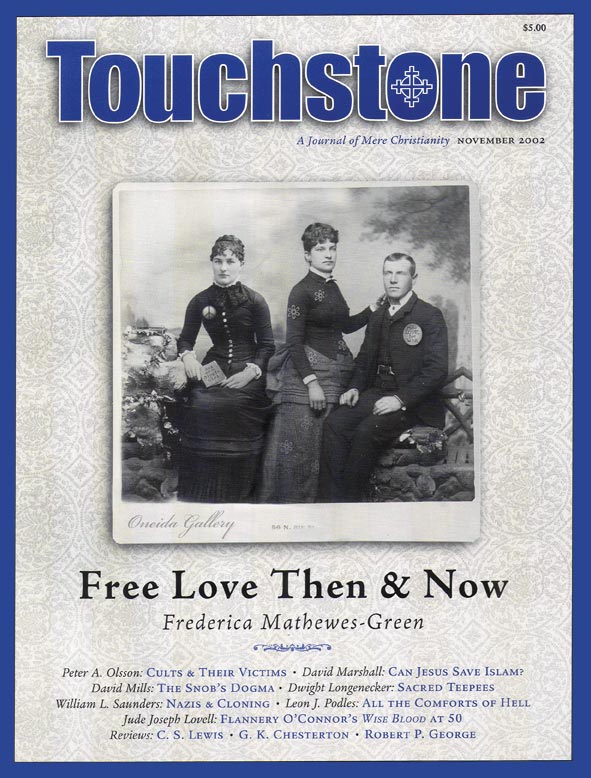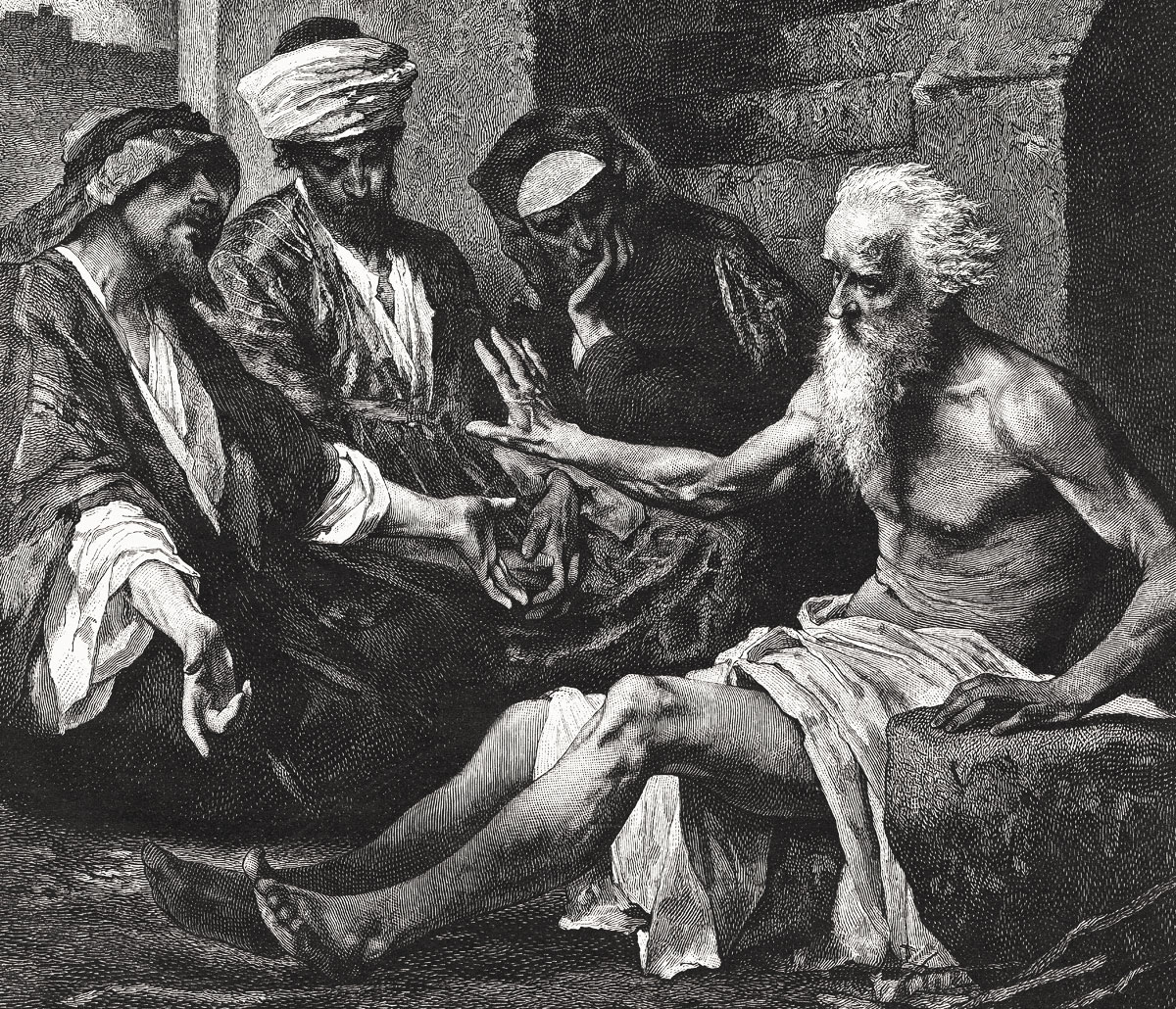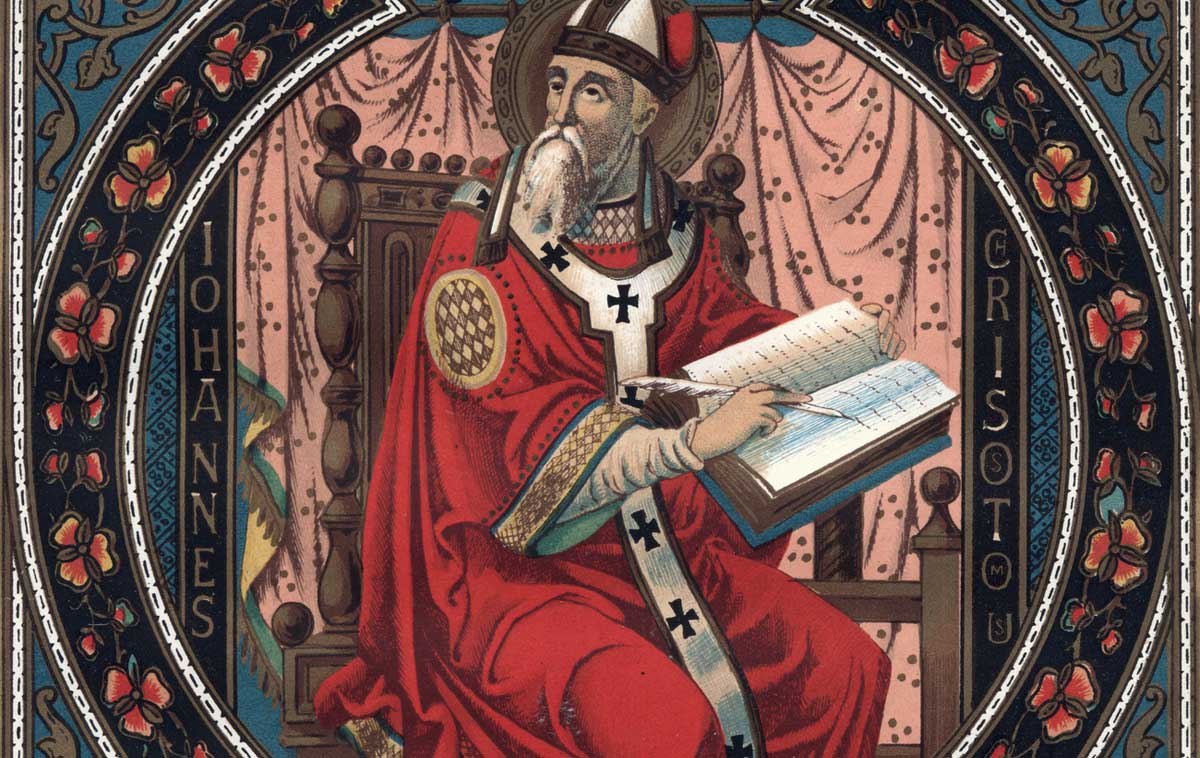The Gentle Lamb Jesus
“With their recent realization that God’s covenant with the Jewish people is eternal, Christians can now recognize in the Jewish tradition the redemptive power of God at work. If Jews, who do not share our faith in Christ, are in a saving covenant with God, then Christians need new ways of understanding the universal significance of Christ.” So wrote 21 Protestant and Roman Catholic members of the Christian Scholars Group on Christian-Jewish Relations in a public ten-point statement, “A Sacred Obligation,” released in September. (For more on the statement, see Quodlibet, page 4.)
The last phrase is the key: “Christians need new ways of understanding the universal significance of Christ.” “New ways” means re-interpreting Jesus so as to remove the offense of his status as the way, the truth, and the life, a belief that many have felt leads to violence and division. Many Christians have been tempted to do this in the wake of September 11, which stirred up fears of religious fanaticism. Offering “new ways” to understand Christ is their contribution to religious peace.
The fear of religious zeal has driven some religious leaders to go more quickly in a direction they had already been going in for some time, to follow the path of an interfaith ecumenism intended to show that ultimately all of the major religions are really about tolerance, kindness, and respect. It takes a great deal of tolerance to live peacefully with those with whom you disagree on ultimate matters, and this tolerance is always in danger of breaking down on both sides. It is easier, and thus tempting, to try to secure social harmony by relinquishing all claims to exclusive truths. Especially if you can call this giving up of the ancient Christian teaching merely finding a “new way” to understand who Jesus is.
But Christians do not have the luxury of doing this. They cannot adopt “new ways of understanding” their Lord. They cannot make room in Christianity for a Mohammed as a prophet of peace by making Jesus into another prophet, whether somewhat superior or inferior to Mohammed. For Jesus is “more than a prophet.” They cannot reduce the danger of Christian fanaticism by making their Jesus a figure no one would fight about. They cannot make Christianity more congenial by making it less Christian. Jesus is who he is.
There are those who claim to be Christians and are sorely tempted to do this, whether in dialogue with Jews or Muslims, or with American cultural critics. Yet if there is anything clear in the New Testament, it is that Jesus Christ allows no tampering with either his words or his Person. St. Peter when he rebuked Jesus, James and John when they asked for authority, and Pilate when he questioned him learned that he cannot be molded into something else. St. John said without qualification that he who denies that Jesus is the Son of God made man “is not of God” and has “the spirit of Antichrist.” Jesus is who he is.
Some religious leaders think they are doing the world a favor by bringing on board a domesticated lion Mohammed to lie down with a gentle lamb Jesus who just wants everyone to get along. Their Christ is no Son of Man with eyes “as a flame of fire,” but an Offspring of Humankind in whom an especially strong spark from a Divine Parent resides, as it does in other religious leaders, like Moses, Mohammed, and Buddha.
Such is the interfaith temptation to do what we have no right to do. And indeed to do what we cannot do, for Jesus remains the way, the truth, and the life no matter how hard we try to find “new ways of understanding the universal significance of Christ.” If we want to bring peace to the world and reduce the dangers of zeal and fanaticism, we all had best spend our days preparing to meet him who is coming to judge the living and the dead, including each one of us, however we may understand him.
—James M. Kushiner & David Mills, for the editors
James M. Kushiner is the Director of Publications for The Fellowship of St. James and the former Executive Editor of Touchstone.
David Mills has been editor of Touchstone and executive editor of First Things. He edits the opinion page of the Pittsburgh Post-Gazette.
subscription options
Order
Print/Online Subscription

Get six issues (one year) of Touchstone PLUS full online access including pdf downloads for only $39.95. That's only $3.34 per month!
Order
Online Only
Subscription

Get a one-year full-access subscription to the Touchstone online archives for only $19.95. That's only $1.66 per month!
bulk subscriptions
Order Touchstone subscriptions in bulk and save $10 per sub! Each subscription includes 6 issues of Touchstone plus full online access to touchstonemag.com—including archives, videos, and pdf downloads of recent issues for only $29.95 each! Great for churches or study groups.
Transactions will be processed on a secure server.
more from the online archives
calling all readers
Please Donate
"There are magazines worth reading but few worth saving . . . Touchstone is just such a magazine."
—Alice von Hildebrand
"Here we do not concede one square millimeter of territory to falsehood, folly, contemporary sentimentality, or fashion. We speak the truth, and let God be our judge. . . . Touchstone is the one committedly Christian conservative journal."
—Anthony Esolen, Touchstone senior editor









